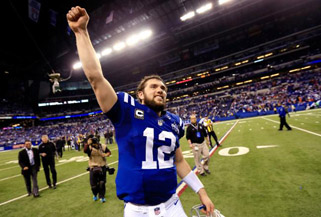|
|
Monday Morning Quarterback Part IIIBy BOP StaffJanuary 9, 2014
Wow. I actually didn't even know that until I looked it up. Scorsese makes high quality, stylistically distinctive, thought provoking material that relies a lot on word-of-mouth for long term success. The man's work is a slow burn, and the very light 27% in receipts The Wolf experienced from first to second frame suggests we may be seeing the same thing at work here. Time will tell, but time seems to be what it takes for most of Scorsese's work to find its audience. And when it does, I suspect that The Wolf of Wall Street stands a fair chance of being that fourth $100 million earner. And by the way, you know who the star of those Big Three earners was? Leonardo DiCaprio. Max Braden: I think that's strong and reflects an uncommon type of Scorsese movie. With many of Scorsese's films, part or a lot of the draw is the feeling that you're going to get an authentic view behind the curtain of worlds you're not normally allowed to access. In some cases it's a glimpse, and in other cases there's a strong tale to the movie. So in Goodfellas, Casino, Gangs of New York, and The Departed, you're going into the movie wondering how the main character is going to get out of his obviously spiraling lifestyle alive. I don't get that sense about The Wolf of Wall Street from the trailers (I haven't seen the movie yet). It looks more like the point is to get a taste of 1980s excess, like The Aviator or a modern Great Gatsby. I assume DiCaprio's character is doomed, but I don't really care; the draw for me is the hubris on display. He looks like Gordon Gekko turned up to 11. In that sense this movie plays more like a comedy than a drama. Yet everyone knows this is still a Scorsese drama, so I wouldn't expect it to make noisy comedy money. I see this movie just chugging away at the box office and continuing to make money. It wouldn't surprise me if The Wolf of Wall Street turns out to be one of Scorsese's highest grossing movies on the lower end of the opening weekend figure list.
|

|
|
|

|
Friday, November 1, 2024
© 2024 Box Office Prophets, a division of One Of Us, Inc.


